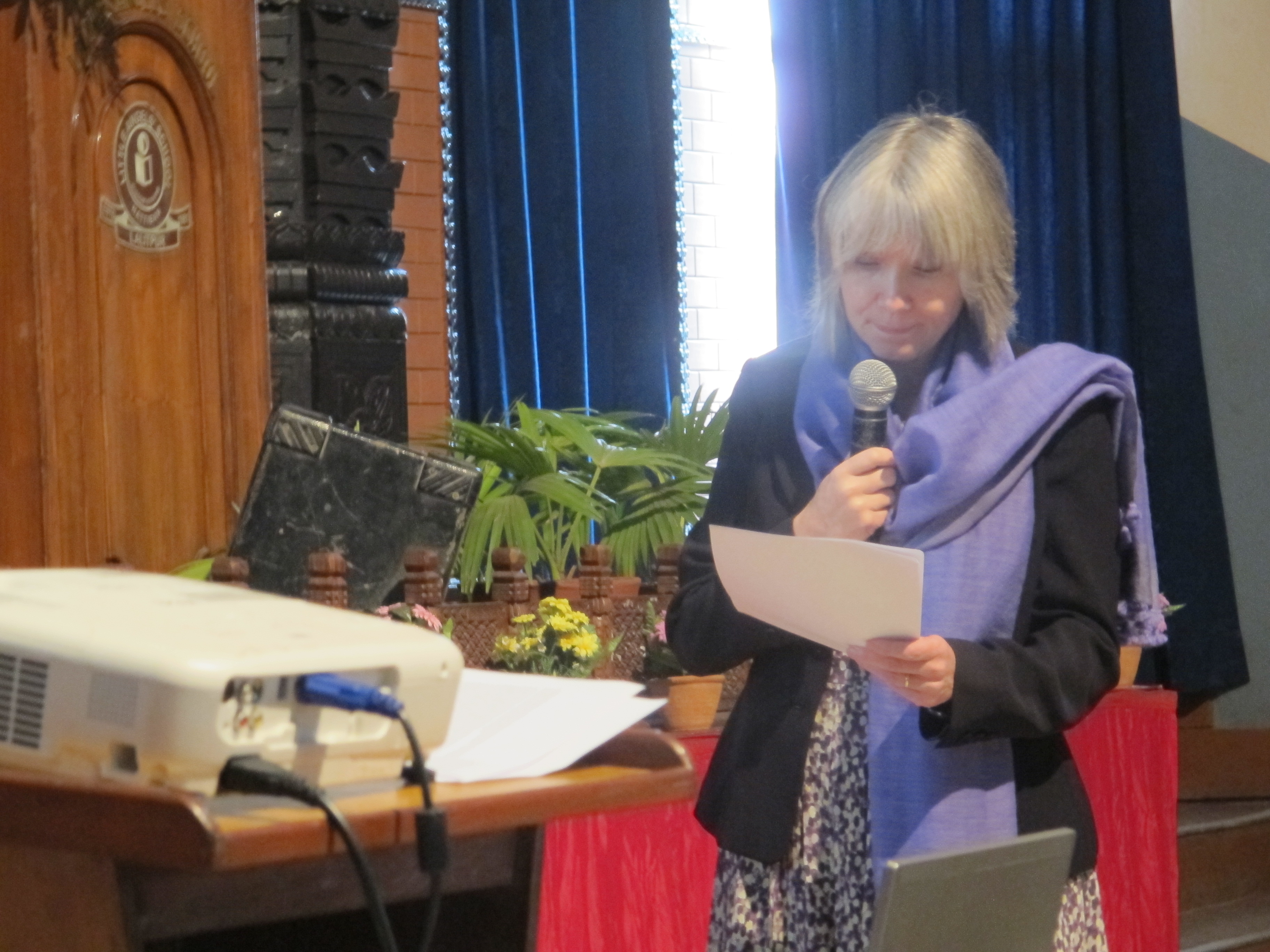Suman Laudari
Do English teachers still need dictionaries, especially printed dictionaries? Because internet gives access to the online form of most of the monolingual and some bilingual dictionaries, do English teachers need to buy and ask students to buy dictionaries? Dictionaries are usually bulky and voluminous, so should we ask students not to buy them, but rather suggest them to use mobile or web dictionaries? This write-up will attempt to answer these questions in relation to the talk given by Dr. Elaine Higgleton, in the 19th International Conference, L.A. School, Hattiban, Lalitpur.
Dr. Higgleton, who is one of the chief editors of Collins Advanced Learners’ Dictionary, focused on the importance of dictionary and significance of their use in this age of digital media. She started her talk presenting an account of how the buying of printed dictionaries has declined over the decade from around 250,000 to 35,000 copies annually. She attributes the reason to the easy availability of large free online dictionaries. Having talked about the history of dictionaries, in which she concluded that the notion of dictionary is always changing based on the perceived needs of the users and the intention of the compiler, she went on to say that the online dictionaries complement the print versions of them. Most of the online dictionaries, according to Dr. Higgleton, are traditional in form and are not user friendly. Hence, learners of English as a foreign language might find it very hard to use online dictionaries and make a sense out of them. Yet, on the other hand, millions of hits have been recorded by different online dictionaries web pages, and it is reported that people seem to be contented with what they get from those online dictionaries.
Moreover, learner’s dictionaries also provide free access to their online dictionaries. Most of these dictionaries do serve purpose as they can aid learners in their effort to learn spelling, hear spelling or check grammar. Nonetheless, Dr. Higgleton claimed we should encourage learners to buy dictionaries because most printed dictionaries offer “more bespoke and tailored content” for users having special needs. Secondly, printed dictionaries are user friendly given that we do not need to depend upon lights of internet connectivity to use them. Thirdly, they can be carried to the classroom and used as per the requirement. Also, she stressed that the lexis chain that the dictionaries provide can be useful in creating other vocabulary related activities. Next, the printed dictionaries can be used in creating grammar exercise to simple writing exercise. And, they also aid learners if they would like to score higher in English examination. Lastly, she added that bespoke and tailored designed traditional dictionaries address the specific content needs of learner most of which are driven by their context and L1.
In line with the arguments of Dr. Higgleton, I as a teacher and learner of English feel that dictionaries have a high significance in the successful learning of English. Reflecting back to my language learning experience, I can vividly remember that I used to have oxford dictionary placed near to my bed while I sat on my bed to read. I can recall noting down words, in class while teaching or while attending university classes, to find their meaning and the usage in the dictionary. I have used dictionaries for multiple purposes. I have used them to decide whether I should use one word over another; whether I should use a particular preposition or conjunction after the given words; to find out how a particular word is used in sentence.
One of my fond memories related to the use of dictionary goes back to the first year of my teaching career, when I bought a dictionary and a self-help grammar book to brush my English language with the first salary that I received. Obviously, dictionary alone does not help, but having one may aid language learning task. I used that dictionary for reasons mentioned above. Since then, I have bought multiple copies of dictionaries. I feel that buying dictionaries is an investment, which worth it.
Hence, I conclude that yes we still need dictionaries, and we should encourage our learners to buy printed dictionaries. We can do multiple, language related activities in class if all our learners bring their dictionaries. Further, we can also request the school/college administration to buy newer version of dictionaries. Because, language is dynamic and so are the needs of learners, the newer versions can address those needs.
—-
Suman Laudari
Adjunct Faculty at Kathmandu University, School of Education
Lecturer at Ace Institute of Management, Baneshwor.

